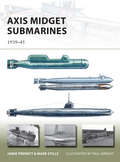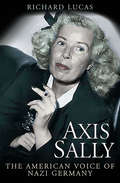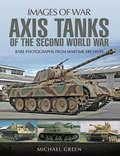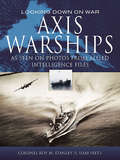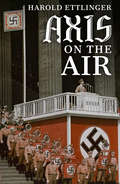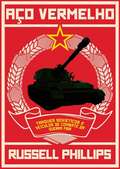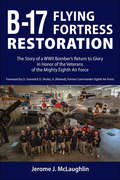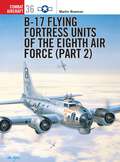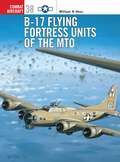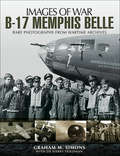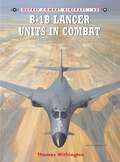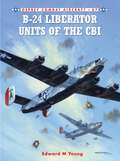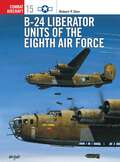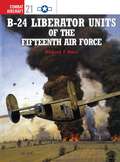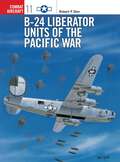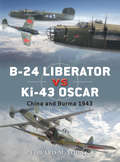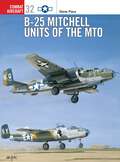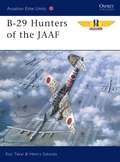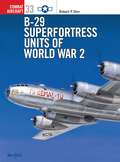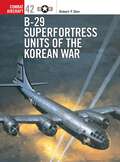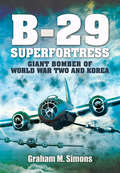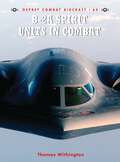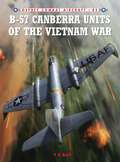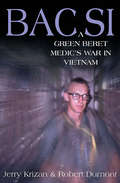- Table View
- List View
Axis Midget Submarines
by Paul Wright Mark StilleDuring World War II, Germany, Japan, and Italy built approximately 2,000 small, inherently stealthy, naval craft to perform special operations and conventional naval missions. Much more numerous and more technically advanced than their Allied counterparts, they saw service worldwide, operating in the Pacific, Mediterranean, Black Sea, Indian Ocean, North Sea, and the English channel. Manned by courageous crews, these vessels made daring attacks on Allied ships in heavily protected anchorages using torpedoes and mines. Most notable were attacks against Gibraltar - launched from an Italian cargo vessel interred in nearby neutral Spain that had been converted into a clandestine support base and equipped with an underwater hatch - and Pearl Harbor. They were used against shipping in coastal waters and, near the end of the war, in desperate attempts to offset their opponents' overwhelming naval superiority during the US advance across the Pacific and the Allied amphibious landings in France and Italy. This volume will detail the history, weapons, and operations of German, Japanese, and Italian midget submarines.
Axis Sally: The American Voice of Nazi Germany
by Richard LucasA &“fascinating, well-researched account&” of Mildred Gillars, the failed actress who turned on her country and became a Nazi propagandist during WWII (Publishers Weekly). One of the most notorious Americans of the twentieth century was a failed Broadway actress turned radio announcer named Mildred Gillars (1900–1988), better known to American GIs as &“Axis Sally.&” Despite the richness of her life story, there has never been a full-length biography of the ambitious, star-struck Ohio girl who evolved into a reviled disseminator of Nazi propaganda. At the outbreak of war in September 1939, Gillars had been living in Germany for five years. Hoping to marry, she chose to remain in the Nazi-run state even as the last Americans departed for home. In 1940, she was hired by the German overseas radio, where she evolved from a simple disc jockey and announcer to a master propagandist. Under the tutelage of her married lover, Max Otto Koischwitz, Gillars became the personification of Nazi propaganda to the American GI. Spicing her broadcasts with music, Gillars&’s used her soothing voice to taunt Allied troops about the supposed infidelities of their wives and girlfriends back home, as well as the horrible deaths they were likely to meet on the battlefield. Supported by German military intelligence, she was able to convey personal greetings to individual US units, creating an eerie foreboding among troops who realized the Germans knew who and where they were. After broadcasting for Berlin up to the very end of the war, Gillars tried but failed to pose as a refugee, and was captured by US authorities. Her 1949 trial for treason captured the attention and raw emotion of a nation fresh from the horrors of the Second World War. Gillars&’s twelve-year imprisonment and life on parole, including a stay in a convent, is a remarkable story of a woman who attempts to rebuild her life in the country she betrayed.
Axis Tanks of the Second World War (Images of War)
by Michael GreenThis pictorial history presents an in-depth study of the various tanks built and deployed by the Axis Alliance during WWII. Though Nazi Panzer tanks have become a ubiquitous symbol of Axis Alliance combat, the Japanese Army had more tanks than Germany in 1938. These included the Type 95 light tank and the Type 89 and 97 medium tanks. Other Axis powers, including Italy, Romania and Hungary also built their own tanks. The latter was responsible for the Toldi and Turan light tank series. In this informative collection of wartime photographs, military expert Michael Green discusses how the Axis powers drew on British and French tank designs in the period leading up to the Second World War. The Carden-Loyd tankette suspension was used as a model for the Panzer 1 series as well as the light Italian and Japanese tanks. German engineering talent then produced the ingenious designs of the Panzer II, III and IV series and, later in the War, the Panther Medium and Tiger heavy tanks.
Axis Warships: As Seen on Photos from Allied Intelligence Files (Looking Down on War)
by Colonel Roy M. Stanley IIFor his latest book Colonel Roy Stanley presents aerial photographs of the German and Italian fleets that were selected as important six decades ago and have long lain dormant, unindexed and unexplained. Extensive use of aerial and other Intelligence imagery from long retired files would be enough to make this book a must for those intrigued by World War II intelligence and naval history. But it is the author's commentary that makes this work truly unique, thanks to his aerial photo interpretation experience, ability to provide Intelligence analysis, and academic background. Meticulously researched for ship identification, the eye of an experienced PI sees things others might miss, and the author tells us what he sees. Some of these photos may have appeared in contemporary documents but never with the insight presented in this book. We see warships under attack, at sea and in harbor as captured by photo reconnaissance. Analysis of selective enlargements adds to the understanding. Even the most devout follower of warships will learn something.
Axis on the Air
by Harold L. EttlingerThe Axis on the Air, first published in 1943, is a fascinating look at the use of radio for propaganda purposes by the Nazis, Japanese, and Italians during World War II. Author Harold Ettlinger, a columnist for the Chicago Sun, provides insight and numerous examples of Nazi Propaganda Minister Goebbels, famous traitors such as “Lord Haw Haw,” Jane Anderson, and Ezra Pound, and Axis broadcasts to its own citizens as well as efforts to create unrest and lower morale in England and the United States. The book also examines Allied radio services such as the BBC and Voice of America, plus radio stations in some of the smaller European countries such as Sweden and Finland.A vivid, authentic description of how the Axis, led by Goebbels, has used the radio as a weapon for subjugating its enemies.
Aztechs
by Lucius ShepardIn Aztechs, Shepard returns to the near-future setting of his Nebula Award-winning story, "R&R" (later part of Life During Wartime). El Rayo, the bustling border community grown up along the electrified fence along the U.S./Mexican border, is home to Eddie Poe, who earns his living by providing security. The men he hires are AWOL U.S. soldiers. AZTECH, a mysterious high-tech firm rumored to be run by a renegade U.S. military AI named Montezuma, hires Eddie and his bodyguards to join AZTECH representative Montezuma 2 ("Z2") for a meeting with the Carbonell cartel. When the meeting goes sour and Z2 is badly wounded, one of the soldiers lobs a pocket nuke to cover their escape, and Eddie realizes he's no longer in control...
Aço Vermelho: Tanques Soviéticos e Veículos de Combate da Guerra Fria
by Russell Phillips Michel PinheiroA Guerra Fria nunca se aqueceu, mas se tivesse, a União Soviética estaria pronta. Este trabalho referência detalha 73 grandes máquinas de guerra soviéticas, da 2P26 "Baby Carriage" - veícuo enganosamente leve, estilo jipe com quatro mísseis anti-tanque - ao tanque de batalha principal T-80U com sua blindagem avançada e contra-medidas eletrônicas. Sessenta e uma fotografias e desenhos ilustram este trabalho, e acesso a uma galeria web com ainda mais ilustrações está incluído na compra.
B-17 Flying Fortress Restoration: The Story of a WWII Bomber's Return to Glory in Honor of the Veterans of the Mighty Eighth Air Force
by Jerome J. McLaughlinThe arrival of the WWII B-17 bomber at the National Museum of the Mighty Eighth Air Force in January of 2009 ini-tiated a great adventure for a group of warbird lovers from the nearby commu-nities as they united to restore that B-17. The dream of the volunteers was to honor the WWII veterans of the Eighth Air Force – some of whom were literally their fathers – by restoring the B-17 to its original pristine condition. The group was challenged by the fact that the airplane had been in storage for more than two decades following a long working life, and was far from the gleaming symbol of power that it had been in 1945. This book is the story of the six year effort by a team of volunteers to over-come the challenges they faced and to fulfill their dream to create a lasting sym-bol to honor their fathers and grandfa-thers and all of the veterans who served in the Mighty Eighth during WWII.
B-17 Flying Fortress Units of the Eighth Air Force (part #2)
by Mark Styling Martin BowmanThe Boeing B-17, which has come to epitomise the American war effort in Europe during World War II (1939-1945), took the fight to Germans from the late summer of 1942 through to VE-Day. Its primary operator in Western Europe was the 'Mighty Eighth', who controlled 27 bomb groups for much of the war. This second of two volumes covers the 14 Bomb Groups of the Third Air Division. First hand accounts, period photography, profile artworks and nose art scrap views bring to life aircraft from each of the groups within the Third Air Division.
B-17 Flying Fortress Units of the MTO
by Mark Styling William HessOsprey's study of the B-17 Flying Fortress Units of World War II (1939-1945). Although the Fifteenth Air Force was dismissed as 'minor leaguers' by the Eighth Air Force, strategic bombers from this outfit had done a 'major league' job on Axis targets in southern Europe following its formation in Italy in November 1943. And the heavy bombers employed by the Fifteenth were of course the venerable B-17 and B-24. At its peak strength, the Fifteenth's B-17 force comprised six groups of four squadrons each, all controlled by the 5th Bomb Wing. Having been a part of the Fifteenth Air Force in 1944, author Bill Hess has long been waiting to write a definitive account on 'his air force'.
B-17 Memphis Belle: Rare Photographs from Wartime Archives (Images of War)
by Graham M. Simons Dr. Harry Friedman&“A grand spread of images showing the aircraft, and more importantly the men who flew and maintained her . . . a must for 8th Air Force aficionados.&”—War History Online Without doubt Boeing Flying Fortress B–17F 41-42285 Memphis Belle and her crew generate an image that is an all-American icon. Indeed, it has been claimed that the Memphis Belle is in the top five of the most famous American aircraft of all time. In September 1942, a new Flying Fortress was delivered at Bangor, Maine, to a crew of ten eager American lads headed by Robert K. Morgan, a lanky 24-year-old USAAF pilot from Asheville, N. C. The boys climbed aboard, flew their ship to Memphis, and christened her Memphis Belle in honor of Morgan&’s fiancé, Miss Margaret Polk of Memphis, and then headed across the Atlantic to join the US Eighth Air Force in England. Between November 7, 1942 and May 17, 1943, they dropped more than 60 tons of bombs on targets in Germany, France and Belgium. The Memphis Belle flew through all the flak that Hitler could send up to them. She slugged it out with Goering&’s Messerschmitts and Focke-Wulfs. She was riddled by machine gun and cannon fire. Once she returned to base with most of her tail shot away. German guns destroyed a wing and five engines. Her fuselage was shot to pieces, but Memphis Belle kept going back. The Memphis Belle crew has been decorated 51 times. Each of the 10 has received the Distinguished Flying Cross, the Air Medal and three Oak Leaf Clusters. The 51st award was Sergeant Quinlan&’s Purple Heart.
B-1B Lancer Units in Combat
by Mark Styling Thomas WithingtonThe development of the B-1B Lancer bomber was difficult to say the least. Originally conceived to fulfill a USAF requirement for an Advanced Manned Strategic Aircraft, the original B-1A concept aircraft was accused of being a white elephant, capable of performing nothing which could not be achieved at less financial and human expense than an intercontinental ballistic missile. Cancelled by the Carter administration and finally commissioned by President Reagan as the modified B-1B, the Lancer began its duties as a nuclear-armed bomber in the mid-1980s. The end of the Cold War (1946-1991) intervened and the jet was removed from its nuclear missions as a result of arms control legislation. However, the 1990s saw the metamorphosis of the Lancer into a potent conventional weapons carrier which has seen action in Iraq, the Balkans and Afghanistan. The Lancer has proved its critics wrong in demonstrating its use as a highly flexible and hard-working bomber, able to undertake diverse missions ranging from CAS to the targeting of weapons-of-mass-destruction installations.
B-24 Liberator Units of the CBI
by Edward Young Mark StylingOsprey's study of the B-24 Liberator Units in the CBI Theatre of World War II (1939-1945). The B-24 Liberator was the mainstay of the US Army Air Force's strategic bombing effort in the China-Burma-India (CBI) Theatre from 1942 until the end of the war in 1945. With longer range and a greater load-carrying capacity than the B-17, the B-24 was well suited to the demands of the CBI. The CBI's two air forces - the Tenth in India and the Fourteenth in China - each had one heavy bomb group equipped with Liberators. These two groups, the 7th and the 308th, carried the war to the Japanese across China and South East Asia, flying over some of the most difficult terrain in the world. The 308th had the added burden of having to carry its own fuel and bombs over the Himalayan 'Hump' from India to China in support of its missions. Despite the hardships and extreme distances from sources of supply, both units compiled a notable record, each winning two Distinguished Unit Citations.
B-24 Liberator Units of the Eighth Air Force
by Mark Rolfe Robert DorrOsprey's examination of the B-24 Liberator Units' participation in World War II (1939-1945). The B-24 Liberator was built in greater numbers than any other US warplane, yet its combat crews live, even today, in the shadow of the less plentiful, but better-known, B-17. Accounts of the 'Mighty Eighth' in Europe, and indeed many of the books and films that emerged from the greatest air campaign in history, often overlook the B-24, even though it was in action for as long as the Flying Fortress, and participated in just as many perilous daylight bombing missions.
B-24 Liberator Units of the Fifteenth Air Force
by Mark Rolfe Robert DorrThe B-24 was heavily utilised in the North African and Mediterranean theatres by the USAAF's Fifteenth Air Force, with operations over the Ploesti oilfields in Rumania being some of the most famous missions undertaken by the big American 'heavy' in World War II (1939-1945). The stirling work of the Fifteenth Air Force is often overshadowed by the glamorous 'Mighty Eighth', yet the men flying the B-24 fought ceaselessly right through to VE Day. This is the third of five titles planned to chart the operational history of the Consolidated heavy bomber, and is the first single volume to exclusively cover the Fifteenth Air Force's B-24 units.
B-24 Liberator Units of the Pacific War
by Mark Rolfe Robert DorrEver present in the Pacific from Pearl Harbor to VJ-Day during World War II (1939-1945), the B-24 Liberator proved to be the staple heavy bomber of the campaign. From its ignominious beginnings in the Allied rout in the Philippines and the Dutch East Indies, the bomber weathered the Japanese storm with a handful of bomb groups, which played a crucial role in checking the enemy's progress firstly in New Guinea, and then actively participating in the 'island hopping' campaign through the south-west Pacific.
B-24 Liberator vs Ki-43 Oscar
by Jim Laurier Edward YoungDuring the late 1930s an armament race developed between bombers and the fighters that were bent on stopping them. The development of multi-engined, multi-gun, all-metal bombers forced a corresponding increase in fighter armament which, in turn, led to further attempts to improve bomber armament to ensure its ability to survive in the face of hostile fighters. The US Army Air Corps (USAAC) requested that powered gun turrets be fitted to its two principal long-range bombers, the B-17 Flying Fortress and the B-24 Liberator. In reviewing reports of air combat from Spain, China and the early stages of the war in Europe, the USAAC assumed that the greatest danger to the bomber would be attacks from the rear quarter, and thus took steps to ensure that both the B-17 and the B-24 had tail turrets. A powered turret above and behind the cockpit could deal, it was felt, with attacks from the frontal quarter so that the nose armament for the B-17 and the B-24 consisted of several hand-held 0.50-cal machine guns, but not a powered turret. German and Japanese fighter pilots would soon discover and exploit this weakness. The JAAF's response to the increase in bomber armament was to develop a so-called heavy fighter in parallel to the development of the Army's main fighter, the Ki-43 Hayabusa (known as the 'Oscar'), which sacrificed armament for superior manoeuvrability. Yet the inability of the Japanese aircraft industry to produce these heavier fighters (the Kawasaki Ki-60 and Nakajima Ki-44) in sufficient quantities meant that the JAAF had no alternative but to rely on the Ki-43 to intercept American heavy bombers. Under the ideal conditions that existed in the Burma and China theatres for much of 1943, the absence of escort fighters allowed the Ki-43 pilots to press home their attacks to devastating effect.
B-25 Mitchell Units Of The Mto
by Steve PaceOsprey's study of the role played by the B-25 Mitchell bombers in the Mediterranean Theater of Operations during World War II (1939-1945). From November 1942 through to May 1945, the backbone of the USAAF’s medium bomber force was provided by the clutch of bomb groups equipped with the B-25 Mitchell. First seeing action in North Africa in the wake of Operation Torch, and in the Battle of El Alamein, the ‘bombing twin’ proved to be one of the most successful allied combat types in the Mediterranean Theatre of Operations (MTO). The first of four volumes planned for the Combat Aircraft series on the Mitchell, this title includes first-hand accounts, 30 colour profiles and more than 100 colour and black and white photographs of the B-25 in the MTO.
B-29 Hunters of the JAAF
by Koji Takaki'B-29!' No other term struck such terror in the hearts of the Japanese public during World War 2 than this single, most-hated name. It was then only natural that the pilots who attempted to shoot these high-flying Boeing bombers out of the skies over Tokyo, Nagasaki, Hiroshima and Kobe should become known as the elite of the Japanese Army Air Force. This book details the exploits of the ‘Dragon Slayers’ who, flying the very latest single- and twin-engined fighters, exacted a heavy toll on the AAF Boeing bombers using a range of tactics including ramming.
B-29 Superfortress Units of World War 2
by Mark Styling Robert DorrThe ultimate piston-engined heavy bomber of World War II (1939-1945), the first production B-29s were delivered to the 58th Very Heavy Bomb Wing in the autumn of 1943. By the spring of 1944 the Superfortress was bombing targets in the Pacific, and by war's end the aircraft had played as great a part as any weapon in ending the conflict with the Japanese. Indeed, the final dropping of two atomic bombs from the B-29 convinced the Japanese to sue for peace. This book traces the wartime career of the B-29, as the aircraft went from strength to strength in the Pacific Theatre.
B-29 Superfortress Units of the Korean War
by Mark Styling Robert DorrThis book is the story of a majestic bomber of the propeller era flying perilous combat missions against a sleek, nimble warplane of the jet age, the Soviet MiG-15. A very heavy bomber and a sky giant during World War II, at that time the B-29 was the most advanced combat aircraft in the world. By the time North Korea attacked its southern neighbour in 1950, thus starting the Korean War (1950-1953) the B-29 had been reclassified a medium bomber. Many of its crew members had fought their war and settled down to raise families and begin careers only to be recalled to fight another war on a distant Asian peninsula.
B-29 Superfortress: Giant Bomber of World War Two and Korea
by Graham M. Simons&“A well written history of a history-changing aircraft,&” the bomber that carried the two atomic bombs that destroyed Hiroshima and Nagasaki in WWII (Aeromilitaria). The Boeing B-29 Superfortress was a four-engined heavy bomber flown primarily by the United States in World War Two and the Korean War. The name &“Superfortress&” was derived from that of its well-known predecessor, the B–17 Flying Fortress. The B-29 was the progenitor of a series of Boeing-built bombers, reconnaissance aircraft, trainers and tankers including the variant, B-50 Superfortress. The B-29 was one of the largest aircraft to see service during World War Two. A very advanced bomber for its time, it included features such as pressurized cabins, an electronic fire-control system and remote-controlled machine-gun turrets. Though it was designed as a high-altitude daytime bomber, in practice it actually flew more low-altitude nighttime incendiary bombing missions. It was the primary aircraft in the American firebombing campaign against Japan in the final months of World War Two. Unlike many other World War Two-era bombers, the B-29 remained in service long after the war ended, with a few even being employed as flying television transmitters. The type was finally retired in the early 1960s, with 3,960 aircraft in all built. Without doubt there is a clear, strong requirement to &“put the record straight&” using primary source documentation to record the undoubted achievements alongside and in context with the shortcomings to the type&’s design and operation that have otherwise received scant attention. The book covers all variants and is profusely illustrated.
B-2A Spirit Units in Combat
by Chris Davey Thomas WithingtonThe B-2A 'Spirit' was an aircraft conceived to fight the Cold War (1946-1991) but which has proved invaluable to both the 'New World Order' and more recently the 'War on Terrorism'. The combination of low-observability, precision strike, range and payload flexibility has made the 'Spirit' the weapon of choice when America hits its enemies at the start of a campaign. Spirits have fired the first shots of Operation 'Allied Force' over Kosovo and Serbia, as well as operations 'Enduring Freedom' (2001-present) and 'Iraqi Freedom' (2003-present). Despite the tremendous cost of the aircraft - each unit is literally worth its weight in gold - the B-2 has had an impact on modern warfare which has vastly exceeded this small force of 21 bombers. Developed in utmost secrecy, the B-2's gestation saw the use of new computer design and manufacturing techniques and ultra-modern synthetic materials making it the most revolutionary aircraft in terms of design and performance. This book examines these incredible aircraft.
B-57 Canberra Units of the Vietnam War
by Jim Laurier T BellOsprey's examination of B-57 Canberra Units during the Veitnam War period (1955-1975). While not receiving as much publicity as the F-105 and F-4 fighter-bombers, which took the fight into the heart of North Vietnam, the B-57 Canberra was nevertheless the first jet-powered American attack aircraft committed to the conflict. It was involved in day-to-day interdiction missions against traffic coming down the Ho Chi Minh Trail, shooting up trucks and bombing and strafing sampans in the Mekong Delta. And, not least, the aircraft flew classified 'black' missions over the border into Laos and Cambodia. The B-57B medium bomber began hitting targets in North and South Vietnam at the beginning of 1965. Although B-57B crews had already made a name for themselves during the hair-raising night missions during Op Rolling Thunder, late in the war many aircraft were upgraded to the then-state-of-the-art B-57G Night Intruder, which became one of the most valuable weapons in the USAF inventory. The B-57E, in its electronic eavesdropping and countermeasures roles, starred in the so-called Patricia Lynn missions, parts of which are still classified today. Also operating alongside the USAF B-57 units, were the Canberra B 20s of the Royal Australian Air Force,attached to the USAF's 35th Bomb Wing - the exploits of the Australian Canberras will be fully documented in this book. The unit flew interdiction missions in support of troops in the field from 1967 to 1971. At the time the Canberra was called to action, the USAF, which considered the aircraft too slow, limited in its mission and not 'sexy' enough, was attempting to phase it out of the inventory. In the event, the B-57 continued to serve for another 20 years, echoing the story of the A-10 Warthog. The author has obtained scores of previously unpublished photographs from the first deployment of the B-57s to Bien Hoa, all the way up to very rare photos of the B-57G being armed and readied for night combat missions. The story of the B-57 in Vietnam has never been told in detail, and since the aeroplane served in virtually every role for the duration the US involvement in Vietnam, the story of the B-57 is, in effect, the story of that war.
BAC SI: A Green Beret Medic's War in Vietnam
by Robert Dumont Jerry KrizanA Special Forces medic delivers &“a fascinating account of an unfamiliar part of the Vietnamese War, written in a compelling style&” (History Of War). During the Vietnam War, US Army Special Forces A-Teams were deployed to isolated outposts or &“camps&” in the remote areas of South Vietnam. Their job was to recruit, train, and house members of the indigenous population while molding them into combat-ready fighting units. A-Teams consisted of up to twelve Green Beret soldiers who were experts in both combat and their individual military specialties.Bac Si, the Vietnamese term for &“medic,&” is the story of Sgt. Jerry Krizan, who was assigned to Special Forces Camp A-331 in the III Corps tactical zone, only ten miles from the Cambodian border. Because of its proximity to a major north-south North Vietnamese Army infiltration route, there were constant enemy troop movements through the camp&’s area of operations and A-331 itself came under attack on more than one occasion. The author accompanied patrols and probes into enemy territory, not only prepared to provide aid but fight as a soldier if the squad was ambushed or chose to attack. In this small-unit warfare against an expert enemy, US soldiers had to survive as best they could, with their only succor a Huey—meantime, on the ground, by themselves against unknown opposition. Our Green Beret base camps were our very first line of defense along the borders of South Vietnam, and in this book, through the eyes of a medic, we learn how dire, and confusing, a role we asked our Special Forces to play during that era.
